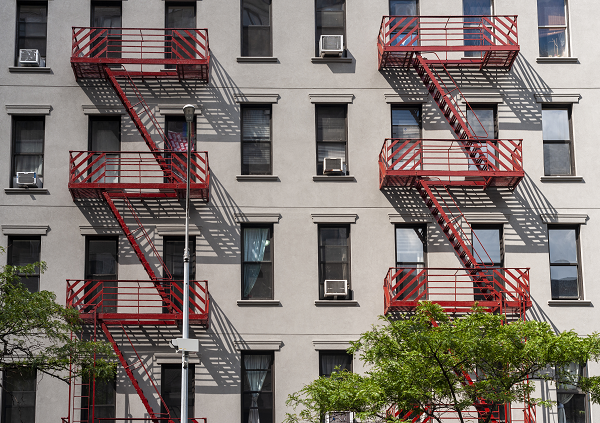Renting a home is an increasingly popular choice, with the Government’s recent English Housing Survey revealing more than 8.6 million renters in the UK, covering both the social and private sectors. This equates to 36% of households, compared to 35% that own their home outright, and 30% that are mortgage holders.
Whilst it offers a huge number of benefits, renting can be a complex world to navigate, with myths and misconceptions abound. Luckily, Nick Woodward, lettings director at property company Essential Living, has debunked some of the most common myths about renting a home in the UK, shedding light on the realities and empowering tenants to make informed decisions.
1. Renting Is Always More Expensive Than Buying
It’s a common belief, but the reality is that the cost-effectiveness of renting versus buying heavily depends on several factors. These include the current housing market, your location, and how long you plan on living somewhere. Remember that the cost of buying a home isn’t just about the mortgage; it includes other expenses like property taxes, building insurance, and maintenance, and selling costs down the line, which can add up.
If you’re renting, you don’t have to worry about any of those costs and instead are only responsible for your monthly rent. You also won’t need to save up the tens of thousands of pounds needed for a house deposit.
2. Renting Means You’re Throwing Money Away
While it might seem that paying rent doesn’t get you anything in the long run, this perspective overlooks the many benefits of renting. For instance, it provides flexibility, doesn’t tie up your money in a property, and frees you from the costs and responsibilities of home ownership.
Gone are the days where people get a life-long job in their hometown and buy a house nearby. Today, people tend to change jobs every few years and renting allows the flexibility to relocate as needed. For many, the financial cost of renting is worth the freedom to move about as they please.
3. Landlords Must Give 24 Hours Notice Before Entering
It’s a common misconception that landlords always have to give 24 hours notice before entering their property occupied by a tenant. While the Housing Act 1988 stipulates that tenants have a right to quiet enjoyment in the property, a landlord may wish to gain access to the house to fulfil obligations such as ensuring gas safety and electrical inspection are carried out. They may also wish to access the property to conduct viewings when the current tenant is moving out.
While a landlord must provide written notice at least 24 hours’ prior to these visits, they are permitted to access the property in extreme situations such as an emergency where there is a fire, a strong smell of gas or water flowing from the property. Outside of these circumstances however, a tenant is within their right to refuse entry unless written notice is provided.
4. Pets Are Not Allowed
Many landlords have restrictions on pets, but it’s not a hard and fast rule that you can’t have pets in a rental property. Each landlord can set their own rules, and some are quite accommodating. Tenant’s should get written consent from their landlord should they wish to keep pets at their property.
Current government plans for rental reforms suggest that soon all tenants will be able to keep a pet in their property if they get written consent from their landlord. If a landlord refuses, and the tenant thinks it’s unreasonable, they will be able to challenge the decision through the courts or a new Private Rented Sector Ombudsman.
Owning a cat or dog in a flat does require some additional considerations however, especially as space may be limited. Some advice includes putting a consistent daily walking and toileting routine in place and pushing furniture against the walls to maximise floor space for your pet to roam around.
5. Rent Prices Are Non-Negotiable
Many people believe that the rental price listed is set in stone, but this isn’t always the case. It’s often possible to negotiate the rent, particularly if you have good references, a steady income, and are willing to commit to a longer lease. With rent prices fluctuating and changing on a monthly basis, letting agents don’t always get the price right, so sometimes you might find that your slightly lower offer gets accepted and saves you some money.
6. You Can’t Decorate or Make Changes
Many people think that as a renter, they have no freedom to decorate or make changes to their home. While it’s true that significant modifications usually require the landlord’s permission, many landlords are open to reasonable changes, especially if they might improve the property. Even if a landlord isn’t fully supportive of your choice of wall colour, they’ll often be willing to allow you to carry out the decorating as long as you return things to the way they were when you eventually move out.
With so many design-conscious renters these days, there’s a booming market for renter-friendly decor that doesn’t cause permanent changes to your apartment, such as stick-on tiles or sticky hooks for hanging art. Always check your tenancy agreement or get written permission from your landlord if you wish to decorate.
7. A Landlord Can Keep Your Deposit Without Reason
This is not true. Landlords can only make deductions from the deposit for specific reasons like unpaid rent or costs for repairing any damage beyond normal wear and tear. Deductions from the deposit are to compensate a landlord for an expense. If your landlord has made a claim to a portion of your deposit, always ensure to ask for a breakdown along with pictures of the damage as well as any receipts for work done.
Deposits should also be protected in a government-approved tenancy deposit protection (TDP) scheme, ensuring a fair process for both parties. If your landlord has not done this and provided proof to you after you moved in, you can apply to your local county court who can order them to either repay it to you or to deposit into a TDP scheme. The court may also order the landlord to pay you up to three times the deposit.
8. Landlords Can Increase Rent Whenever They Want
While landlords can raise the rent, they cannot do so indiscriminately. Most tenancy agreements specify when and how the rent can be increased. For periodic tenancies, landlords must provide appropriate notice, and the increase must be fair and realistic (in line with the local market). They may also not increase your rent more than once a year without your agreement.
For a fixed-term tenancy, you must agree in order for your landlord to increase your rent mid-tenancy. Otherwise, the rent can only be increased once your tenancy ends.
9. Renting Doesn’t Affect Your Credit Score
While traditionally this was the case, since 2017, credit agencies can include rent payment histories when calculating credit scores. Paying rent on time can therefore help build a good credit score.
To enable this, tenants can sign up with a partner of The Rental Exchange, an organisation who can verify your regular rent payments and add them to your credit report, enabling you to build a positive credit history and get approved for loans in future.
10. Landlords Are Responsible for All Repairs and Maintenance
While landlords are responsible for many repairs, tenants also have responsibilities. Generally, tenants must take care of the property and carry out small maintenance tasks, such as:
- changing light bulbs and smoke alarm batteries
- keeping your home reasonably clean and well-ventilated
- keeping the garden under control
- making sure your personal electrical appliances are safe to use
Your tenancy agreement will usually go into detail into what your responsibilities are as a tenant.






Leave a Comment